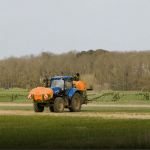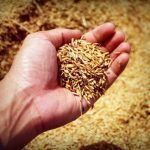Ministers took stock of the market situation in member states, particularly in light of Russia’s war against Ukraine. They further received information from the Commission on the latest developments on agricultural markets. While recent months have shown more stability, energy and input prices remain high, weakening profitability and leading to high consumer prices.
Ministers exchanged views on the possible actions to help ease the situation in Ukraine in the short and long-term, and renewed their commitment to continue to facilitate and strengthen land connectivity via the EU’s solidarity lanes. Ministers moreover acknowledged the impact of the war on EU markets, and discussed support measures for the most affected sectors, including the possible use of the agricultural reserve.

Commission boosts action on pollinators
|
Bioeconomy
Ministers discussed the opportunities of the bioeconomy with a view to adopt Council conclusions on the subject. The ministerial discussion focused especially on the benefits of the bioeconomy for rural areas and acknowledged the contribution that the bioeconomy can bring to addressing several of today’s challenges, including climate change, jobs, competitiveness, energy, and resilience. Actions are already ongoing within the EU and the member states. Ministers agreed that more could be done to unlock the potential, such as mobilising financial resources for innovation and ensuring that EU policy is supporting the development of a sustainable bioeconomy.
Other business
Ministers were informed about the revision of the animal transport legislation and the need for higher animal welfare transport in the single market and for exports to third countries. In the context of the war in Ukraine, ministers moreover were informed about income support measures for 2023, the impact of agricultural imports from Ukraine on EU markets, and the need for a long-term strategic approach for the agri-food sector to ensure the EU’s resilience and global competitiveness. Ministers further were informed about the agricultural aspects of the revision of the industrial emission directive, the Council directive on honey, and the conference of Agriculture ministers, which took place in the context of the 2023 global forum for food and agriculture.

Pilot project, Restructuring of the honey bee chain and varroa resistance breeding and selection programme. Final study report |
“A” items
Adequate minimum income
This Council recommendation aims to combat poverty and social exclusion, and to pursue high levels of employment by promoting adequate income support by means of minimum income, effective access to enabling and essential services for persons lacking sufficient resources and by fostering labour market integration of those who can work.
Luis Planas stresses the importance of facilitating the export of raw materials and foodstuffs from Ukraine.
The minister also stressed that the EU’s solidarity with Ukraine and its farmers should be intensified and called for the prioritization of measures to help ensure the next harvest in this country, in particular with initiatives to provide Ukraine with the necessary inputs for its agricultural production. He stressed the need to support the restoration of Ukrainian agricultural activity in the short and medium term, and to encourage and promote improvements in Ukraine’s infrastructure and logistical capacity for the movement of goods, in order to ensure food security in the world.
In this regard, the Minister recalled that Spain has launched a shock plan to alleviate the international food crisis, endowed with 14.4 million euros, of which 4.4 million will go to the “Grains from Ukraine” initiative; 6.5 million will go to three countries in the Sahel area (Mali, Niger and Mauritania), while the Horn of Africa, Ethiopia, South Sudan and Somalia will receive 3.5 million euros.
On the other hand, the minister shared the need to address a review and update regulations on animal welfare. In the case of animal transport, Spain supports the adoption of proportionate and non-prohibitive approaches that improve aspects such as personnel training or transport conditions. It stressed that the decisions adopted should be supported by scientific evidence and rigorous impact analyses.
More information: European Council







Leave a Reply